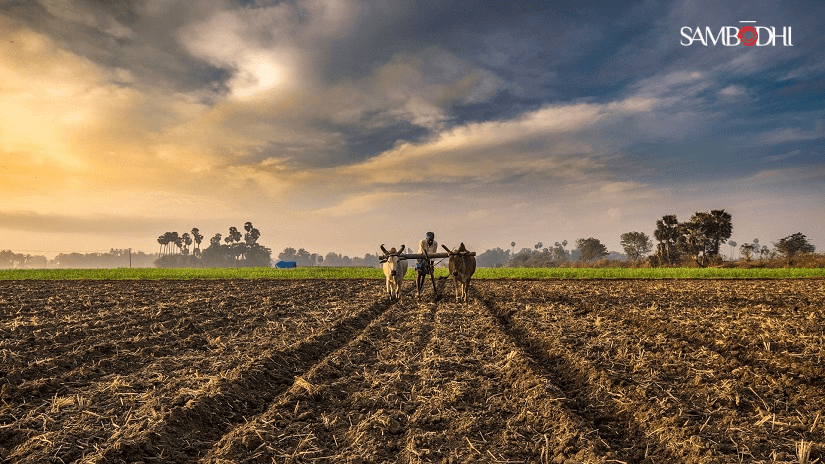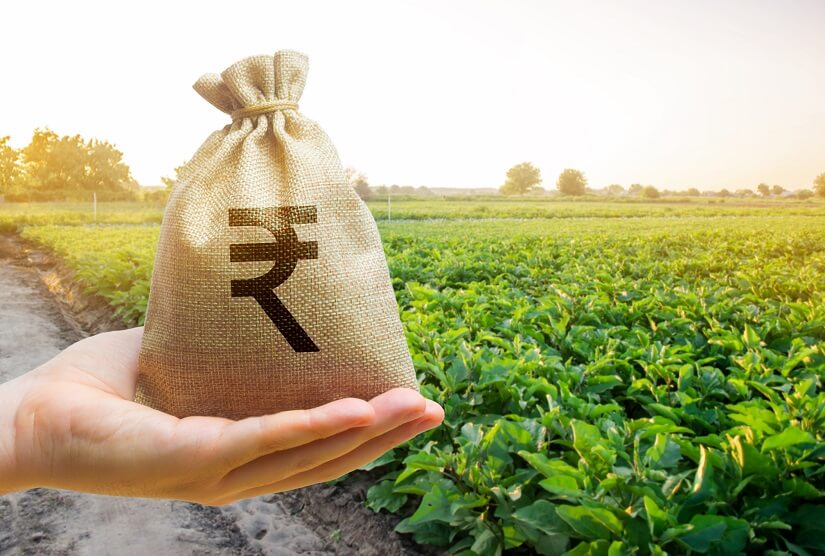Budget towards achieving sustainable and climate-resilient agriculture in India

Achieving sustainable and resilient agriculture in India to address climate change is a prominent feature of the recently presented Union Budget 2023-24. Initiated at a time when many countries, including India, are faced with unseasonal rain, more frequent extreme events, and an increase in temperature, all symptoms of rapid climate change.
The Economic Survey, 2022-23, released by the GoI, emphasized the aggravating impact of climate change on agriculture. 2022 witnessed an early heat wave during wheat harvesting, affecting its production. Similarly, last year, paddy cultivation declined due to delayed monsoons and deficient rainfall. As per the World Hunger Index, 2022, the climate-related extremes push down the productivity of agriculture and fisheries, resulting in rising food insecurity, water scarcity, and malnutrition at the global level.
Sustainable climate-resilient agriculture is essential to achieve food security and sustain growth.
Agriculture employs most of the nation’s workforce, contributing to one-fifth of GDP and playing a pivotal role in India’s economy. Per the ES, the Indian agriculture sector has grown at an average annual growth rate of 4.6 percent during the last six years. It grew by 3.0 percent in 2021-22 and 3.3 percent in 2020- 21, even during the COVID-19 pandemic when other sectors experienced negative growth.
Addressing climate change’s impact on agriculture and emphasizing the resilience and sustainability of the agriculture sector is vital to ensure food and livelihood security and economic growth. Food security and agriculture featured prominently at the UN Climate Change Conference COP27 in Sharm el-Sheikh in 2022, with governments working on stepping up action to cut greenhouse gas emissions and adapt to climate change in the agriculture sector.
Promoting natural and organic farming helps achieve better soil health and agricultural sustainability.
The Budget promotes organic and natural farming, which provides chemical fertilizer- and pesticide-free food grains and other crops, improves soil health, and reduces water pollution. Several studies have shown that organic and natural farming reduces greenhouse gases and increases carbon sequestration. This helps fight climate change because organic and natural farming has been shown to lock carbon away in the soil.
The Government has already been promoting organic farming through dedicated schemes such as:
- Paramparagat Krishi Vikas Yojana (PKVY)
- Mission Organic Value Chain Development for Northeastern Region (MOVCDNER)
- Zero-Budget Natural Farming (ZBNF), has been promoted by Government through Bhartiya Prakratik Krishi Paddhati (BPKP)
India already has 44.3 lakh organic farmers, the highest in the world, and about 59.1 lakh ha area was brought under organic farming by 2021-22. The Budget has tried to promote other natural and organic farming to achieve agricultural sustainability and chemical-based agriculture to help India achieve food security.
Promoting alternative fertilizers and waste management through PM-PRANAM and Gobardhan schemes helps retain soil healthily and achieve environmental sustainability.
Worldwide, agriculture both contributes to and is threatened by climate change. Agriculture in India is estimated to contribute to 28% of greenhouse gases. Of this, enteric fermentation in ruminants accounts for about 50% of methane. Methane emission from rice fields and nitrous oxide from the application of manures and fertilizers is also significant.
The Budget 2023-24 has also launched PM-PRANAM (Prime Minister’s Programme for Restoration, Awareness, Nourishment, and Amelioration of Mother Earth) to incentivize states and Union Territories to promote alternative and balanced use of chemical fertilizers. The Government has also announced 500 new waste-to-wealth plants under the Gobardhan scheme, which promotes compressed biogas plants to help reduce stubble-burning practices, particularly in northwest India, which would help minimize land and water pollution.
Wetlands conservation through the AMRIT Dharohar program helps combat floods and sustain groundwater and biodiversity.
The Budget proposed to launch the AMRIT Dharohar program to protect and sustainably use wetlands. Wetlands, critical for storing peak rainfall and releasing water gradually during the lean season, play a significant role in maintaining the groundwater table and preventing flood.
The floods in Kashmir Valley in September 2014 and Chennai city in December 2015 are reminders of how wetland destruction can make lives vulnerable. The Ramsar Convention, signed on February 2, 1971, is one of the oldest inter-governmental accords signed by member countries to preserve the ecological character of their wetlands of international importance. India has 75 Ramsar sites covering an area of 13.3 lakh ha, and protection and sustainable use will help achieve agricultural resilience through less flooding and maintenance of the groundwater table.
Coastal area mangrove forest expansion through the MISTHI program helps reduce cyclones’ impact and combat climate change.
The Budget proposed the MISTHI (Mangrove Initiative for Shoreline Habitats & Tangible Incomes) program to protect and expand mangroves in India’s coastal wetlands, which would help reduce the impact and severity of cyclones and flooding and reduce greenhouse gas. This is a great initiative to achieve resilience in the agriculture sector in coastal areas of India.
What is the impact of such a Budget?
India has already reached the point where it can make all of its own staple foods. The focus is on increasing farmers’ income and food security, as well as making agriculture more resilient and long-lasting. India is one of the most vulnerable countries because it has a long coastline, agriculture that depends on the monsoons, many fragile ecosystems like the Himalayas, and a large economy based on farming. India needs to take important steps to fight climate change.
The Budget for 2023–2024 is bold and realistic, with well-intended steps to make agriculture sustainable and resistant to climate change. With a series of steps to encourage organic and natural farming, a focus on protecting the coastal ecosystem through the expansion of mangrove forests under the MISTHI program, and a focus on protecting wetlands that are important to keep groundwater flowing and keep floods from happening in the catchment areas, the budget has put an emphasis on making the country more sustainable and resilient. Even though the steps in the budget are well-timed and a step toward stability, a lot depends on how well the programs are implemented. This means having enough trained staff, a clear institutional mechanism, enough money, and regular monitoring and evaluation.
References
Economic survey, 2022-23, Ministry of Finance, Government of India
Union budget document, 2023-24, Ministry of Finance, Government of India
Swaminathan, M.S., Kesavan, P.C. Agricultural Research in an Era of Climate Change. Agric Res 1, 3–11 (2012).
https://unfccc.int/news/governments-step-up-action-on-agriculture-and-food-security-at-cop27
Global hunger index, 2022, food systems transformation and local governance. ISBN: 978-1-9161928-9-8
Biswaranjan Baraj – Assistant Vice President, Sambodhi



